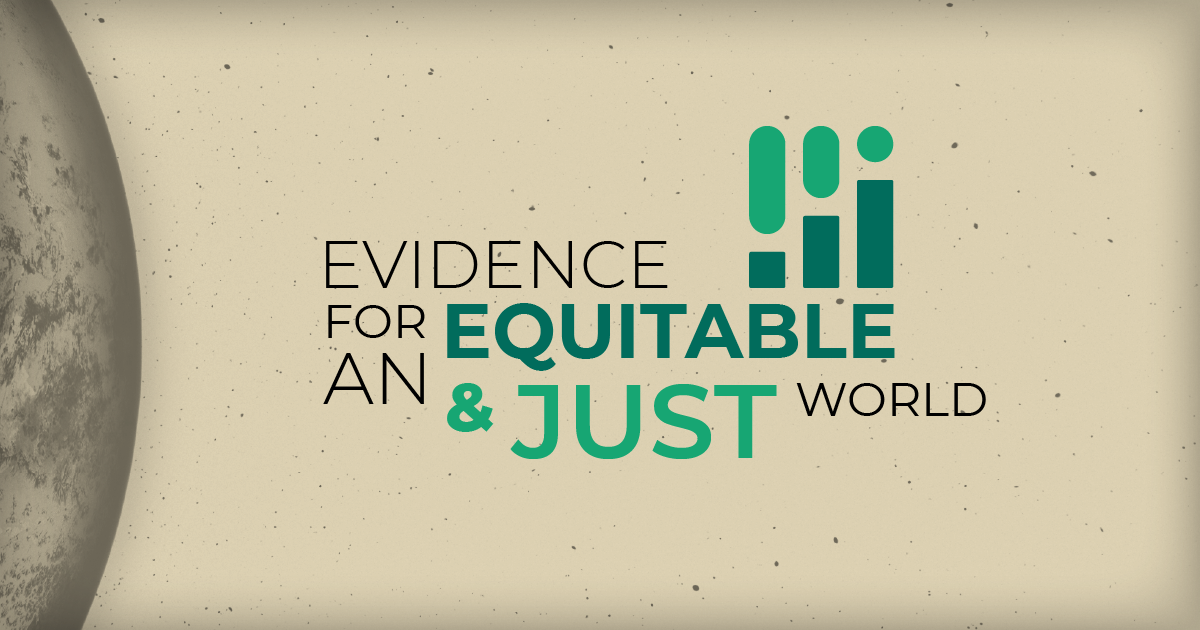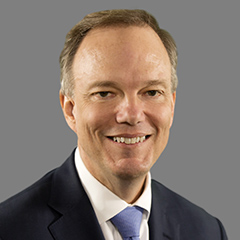It’s Mathematica’s mission to improve public well-being through the use of data and evidence. By design, that mission is deliberately broad and can apply to a range of urgent health and social challenges, from expanding access to affordable and high quality health care to reducing unemployment. While our mission isn’t changing, Mathematica is taking steps to be more intentional about advancing equity and social justice in pursuit of improved public well-being. As far as we’re concerned, the two are inextricably linked. We can’t have one without the other.
Earlier this year, I shared a vision for Mathematica in 2035, which envisioned us “shaping an equitable and just world where evidence drives decisions for global impact.”
We’re far off from that world today. The COVID-19 pandemic has cast a spotlight on health and economic disparities that were made worse by the current public health crisis. For example, Black, Latinx, and Indigenous Americans tend to work in essential occupations that put them at higher risk of contracting COVID-19; to make matters worse, if they become infected, they face a higher risk of developing severe symptoms. The economic fallout from the pandemic has also disproportionately affected women, particularly mothers, many of whom have reduced their hours or left the workforce entirely, because their children, parents, or other household members needed a caregiver at home. In addition, Asian Americans and Pacific Islanders have endured a reported uptick in instances of racism, hate crimes, and violence.
Shaping a more equitable and just world will require new evidence. We need better information on the root causes of inequities and how to address them. The evidence-building community has an important role to play in advancing equity. We can take steps to make our own organizations more diverse, inclusive, and equitable. We can collaborate to ensure that our field is intentionally recruiting, training, and empowering employees whose wide range of lived experiences can enhance our work. Beyond those internal measures, we can be more strategic about the projects we pursue, the methods we use, and the ways in which we engage communities to share findings.
Even though it’s been more than five years since Mathematica began to embed diversity, equity, and inclusion principles in the organization, we are still in the early stages of our own journey. In that time, we’ve established a Diversity Council, created Employee Resource Groups, instituted a mentorship program, revised our staff recruiting processes and targets, implemented a more transparent career and compensation framework, and created a dedicated senior-level position focused on our diversity, equity, and inclusion strategy. We also we implemented a modified Rooney Rule for senior hires, which requires that we interview at least one qualified Black person, Latinx/Hispanic person, veteran, or person with a disability for senior positions. Because we’re Mathematica, we’re setting annual, quantifiable performance goals around hiring and retention, and we’re using data to first measure progress and then understand how we can improve.
But our efforts cannot stop at internal initiatives. To improve public well-being, we want to engage externally to advance equity and justice in our field and for all. Organizations like Mathematica involved in generating evidence need a wider range of voices at the table. Increasing the pipeline of diverse talent in our field requires partnerships across organizations and sectors. Mathematica has already formed some of those partnerships, and we’re always looking for more allies to make our industry more inclusive. For example, this year we’re partnering with Howard University to sponsor the first Summer Institute in Computational Social Science program hosted by a historically Black university or college. While the program is open to anyone, we encouraged those from groups currently underrepresented in computational social science to apply. Over two weeks, about 30 social scientists and data scientists will receive free instruction on using data and innovative research methods to address anti-Black racism and inequity.
Through partnerships with the Sadie Collective and the Association for Public Policy and Management, we’ve sponsored events aimed at providing networking opportunities for students who are typically underrepresented in the policy research community. We’ve also joined CEO Action for Diversity and Inclusion™, a coalition of 1,300 business leaders committed to advancing diversity and inclusion in the workplace and beyond. And we’ve been proud to partner with the Annie E. Casey Foundation on its Expanding the Bench initiative, which aims to increase the number of historically underrepresented minority researchers and evaluators. As a practicum site, Mathematica has provided opportunities for scholars enrolled in the foundation’s Leaders in Equitable Evaluation and Diversity program to serve on several evaluation project teams.
Beyond making changes to the composition of our workforce, we understand that the way we work needs to evolve, as well. The field will evolve because we all want our research to generate compelling evidence that drives impact. It’s our responsibility to proactively shape the conversation around evidence and help it inform decision makers. Communities that could act on our findings first need to trust our data and trust us. Mathematica is already exploring the use of culturally responsive and equitable evaluation and other rigorous methodological approaches that engage communities in the research process, establish trust, and ensure impact.
Beyond the methodological changes that we’re implementing, we will have to pursue work that explicitly specifies inequity and injustice as central challenges to confront. In the past, Mathematica and its partners have sought to promote health and social outcomes that undoubtedly advanced equity. But going forward, I expect equity and justice to be the primary goals in much of our work.
This shift is already underway. In one project, Mathematica partnered with the chancellor’s office at California State University to understand how faculty, staff, student advisors, and leaders across all campus departments and divisions used an interactive data dashboard to increase graduation rates and eliminate equity gaps. In another project, the Bill & Melinda Gates Foundation asked Mathematica to convene experts and share insights about how to incorporate equitable practices within programs aimed at increasing economic mobility through coaching and navigation services.
Mathematica’s tagline is Progress Together. The events of the past year have reminded us that to make progress we must create a more equitable world—in which each of us has what we need to succeed, whether that’s access to opportunity, networks, resources, or supports. The second part of our tagline is also important because, even though Mathematica is committed to advancing equity and justice, we can’t do it alone. To shape the world we envision in 2035, we’ll need allies. It’s an enormous challenge, but one we’re ready to face together.



